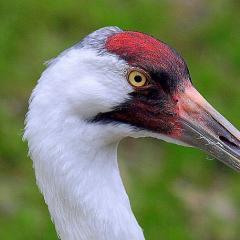Presentation on the topic “Biography of Paustovsky. Presentation by Konstantin Georgievich Paustovsky presentation for a reading lesson Presentations on stories by Paustovsky
Konstantin
Georgievich PAUSTOVSKY 1892 - 1968 Life And creation
Made up teacher of Russian language and literature high school No. 2 of Kapan city Asatryan Narine

Paustovsky
Konstantin
Georgievich 1892 - 1968
Life and creation
writer

Konstantin Georgievich Paustovsky born May 31 (19), 1892 in Moscow.
Paustovsky's father was petty official, employee. Due to his restless, dreamy nature, he constantly changed jobs. Left his family when Konstantin studied in the sixth grade of the gymnasium.
During the early childhood of the future writer his family often moves from place to place until they settle in Kyiv.

Konstantin Georgievich Paustovsky 1892 - 1968
1911 - Konstantin Paustovsky graduates from the first classical gymnasium and enters to Kyiv University to the Faculty of Natural History. After studying in Ukraine for another two years, he transferred to Moscow, to the Faculty of Law of Moscow University.
1912 – Paustovsky’s story “On the Water” first published in the almanac “Lights” (Kyiv).
1913 – move to Moscow. As a student, Paustovsky changed many professions.

Konstantin Georgievich Paustovsky 1892 - 1968
First World War – Konstantin Paustovsky at the front, working on an ambulance train.
1915 - both of Paustovsky’s older brothers die at the front, and he returns to Moscow to my mother and sister. But soon again begins to wander, travels a lot around Russia. Works in Yekaterinoslav at a metallurgical plant and at a boiler plant in Taganrog, fisherman in the Sea of Azov. At the same time, he is engaged in journalism and literature. His articles are published in local newspapers of the cities where he visits.
Summer 1916 - Konstantin Paustovsky marries Ekaterina Stepanovna Zagorskaya, with whom I worked on the ambulance train.

Konstantin Georgievich Paustovsky 1892 - 1968
1918 – return to Ukraine, to Kopan, where Paustovsky’s mother lives.
1919 – position of proofreader in the newspaper "Kyiv Mysl".
1920 - transfer to the information and publishing department of the Odessa Provincial Special Military Commission for the supply of food to the Red Army.
1922 – early 1923 – Konstantin Paustovsky lives in Georgia, works for local newspapers.

Konstantin Georgievich Paustovsky 1892 - 1968
1923 – second move to Moscow.
1924 – service in the large news agency ROSTA (Russian Telegraph Agency, later renamed TASS).
1925 – publication of the first book by Konstantin Paustovsky "Sea Sketches". In the same year he was born his son Vadim.

Konstantin Georgievich Paustovsky 1892 - 1968
1927 – the second book “Minetoza” was published.
1929 – the novel “Shining Clouds” was written.
1932 - the story “Kara-Bugaz” was published. Paustovsky goes to Karelia to collect material for his next works. After the publication of this book, the writer leaves journalism in favor of professional literature. But he also continues travel around the country a lot.

Konstantin Georgievich Paustovsky 1892 - 1968
1934 - “Colchis” was written.
1935 - the novel “Romantics” is published, chronologically this is the writer’s first novel written in 1916 - 1923.
1936 - Paustovsky gets divorced with Catherine and will soon marry on Valeria Valishevskaya, with whom I had a relationship already in the last period of marriage.

Konstantin Georgievich Paustovsky 1892 - 1968
1937 – a series of short stories was written “Summer Days”, historical stories “Orest Kiprensky”, “Isaac Levitan”.
1939 - published story "Meshchera Side". In 1939, Konstantin Paustovsky met the actress of the Meyerhold Theater Tatyana Evteeva - Arbuzova, who became in 1950 his third wife.

Konstantin Georgievich Paustovsky 1892 - 1968
1941 - 1942 - Konstantin Paustovsky, military correspondent from TASS, goes to the front. Publishes his reports in newspapers “For the glory of the Motherland”, “Defender of the Motherland”, “Red Star”. 1942 - return to Moscow, evacuation to Kazakhstan. In Almaty, Paustovsky continues to engage in journalism, works in the Soviet Information Bureau.

Konstantin Georgievich Paustovsky 1892 - 1968
In Almaty (Kazakhstan) it produces collection of short stories "Our Days".
1943 – return to Moscow. 1943 – filmed and released A film based on the script by Konstantin Paustovsky “Lermontov” will be brought to the big screen. 1943 - at the very end of the year, the premiere of his play takes place at the Chamber Theater "Until my heart stops." 1945 - Paustovsky writes an autobiographical story
“Restless Youth”, which became the second part of the series “Tales of Life”.)

Konstantin Georgievich Paustovsky 1892 - 1968
From 1946 to 1963, Paustovsky wrote an autobiographical story, the cycle “Tales of Life” :
- « Restless Youth » - 1946 - 2nd part.
- « Distant years » - 1946 – 1st part.
- « The beginning of an unknown century » - 1957 - 3rd part.
- « A time of great expectations " - 1959 - 4th part.
- « Throw to the south » - 1960 – 5th part.
- « Book of Wanderings » - 1963 - 6th part.

Paustovsky "The Tale of Life" 1946 - 1963
3. The beginning of an unknown century (1956)
2. Restless Youth (1954)
1. Distant Years (1946)
6.Book of Wanderings (1963)
4. Time of Great Expectations (1958)
5.Throw South (1959–1960)

Konstantin Georgievich Paustovsky 1892 - 1968
1948 - “The Tale of Forests” was written.
1955 - the writer buys a house in Tarusa (city in Kaluga region), away from the capital's noise.
1956 – trip around Europe on the ship Pobeda. In those years, it was rare for anyone to such a possibility. 1956 - the story “Golden Rose” was written.
During the same period, the writer comes world recognition, he receives opportunity to travel around Europe, and uses it successfully.

Paustovsky House in Tarusa

Konstantin Georgievich Paustovsky 1892 - 1968
The result of his travels are the works of the 1950s and 60s: "Italian meetings" "Fleeting Paris" "Lights of the English Channel" and others.
1957 - released first collected works K.G. Paustovsky.
1958 - trip to Italy, to Turin for the congress European Writers' Community.

Konstantin Georgievich Paustovsky 1892 - 1968
1962 – trip to France.
1965 – Paustovsky's works were published in Sweden and Italy in the "Nobel" series.
1967 – autobiographical essay written "A few fragmentary thoughts."

Konstantin Georgievich Paustovsky 1892 - 1968
Paustovsky died July 14 1968 in Moscow and, according to his will, was buried in the city cemetery Tarusy (Kaluga region).
Paustovsky's grave in Tarusa


1915 - at the front



K.G. Paustovsky with a dog. Tarusa. 1961

Paustovsky with his son Alyosha and last wife Tatyana Arbuzova.

Paustovsky's house in Tarusa (Kaluga region)
May 30, 1967 K.G. Paustovsky awarded the title "Honorary Citizen city of Tarusa.
Paustovsky House-Museum in Tarusa



- Heart, imagination and mind - this is the environment where something is born, what we call culture.
- We must be the owners of the art of all times and all countries.
- There is an abyss of poetry in every area of human knowledge.

Statements, quotes and aphorisms of Paustovsky
- Voice of conscience and faith in the future do not allow a true writer to live on earth, like a barren flower, and not to tell people with complete generosity all the huge variety of thoughts and feelings, filling himself.

Statements, quotes and aphorisms of Paustovsky
- Human must be smart, simple, fair, brave and kind.
Only then does he have the right to bear this high title -
Human .
- Waiting for happy days is sometimes better than these very days.


"Book of Wanderings"
"A Tale of Forests"
"Old Man in a Shabby Overcoat"
Yellow light
golden rose
Constellation Hound Dogs







In 1958 collected works published K. Paustovsky in six volumes in 300 thousand copies .

Paustovsky Monuments
Paustovsky Memorial Museum in Odessa
Motor ship "Konstantin Paustovsky" in Crimea

Paustovsky Monuments
Monument to Paustovsky in Tarusa

Paustovsky Monuments
Paustovsky, depicted in the form of a sphinx, everything in this life of one who knows and keeps secret knowledge: about the world, about people, about Odessa, looks at others with philosophical wisdom.
"Sphinx - it is a symbol of time, a keeper of wisdom.”
Monument to Paustovsky in Odessa

Paustovsky Monuments
Grave of K. G. Paustovsky. According to his will, he was buried at the local cemetery in Tarusa. On May 30, 1967, Paustovsky was awarded the title "Honorary Citizen" of Tarusa.

Paustovsky Monuments
Paustovsky Museum in Moscow

Every minute, every casually thrown word and glance, every deep or a playful thought, every imperceptible movement of the human heart, just like the flying fluff of a poplar or the fire of a star in a night puddle - all these are grains of golden dust.
We, writers, have been extracting them for decades, these millions of grains of sand, collecting them unnoticed by ourselves, turning them into an alloy and then forged from this alloy your “golden rose” - story, novel or poem.

Konstantin Georgievich Paustovsky 1892 - 1968
No! There is no way for a person you can't live without your homeland, how you can't live without a heart.

- Born in Moscow, in the family of a railway employee. He was the fourth child. Due to his father’s profession and his character, the family often moved from place to place. Mother is a domineering and not affectionate woman.
- In 1911, he graduated from high school in Kyiv and wrote his first story, which was published in the literary magazine Ogni.

- During his long life as a writer, he visited many countries in our country and changed many professions. During World War II he was a correspondent
- But he especially fell in love with Meshchera, a fabulously beautiful region between Vladimir and Ryazan.
- Thanks to this, many stories about nature and the short story “Meshcherskaya Side” appeared.

- Konstantin Georgievich was a very kind, honest, hardworking person. He was observant, knew how to fantasize and see the unusual in his surroundings. He tried to convey these important human qualities to children through his works.

- 1935 - “Kara-Bugaz”
- 1957 - “Telegram” (short film)
- 1960 - “Northern Tale” (film)
- 1967 - “The Disheveled Sparrow” (cartoon)
- 1973 - “Warm Bread” (cartoon)
- 1979 - “Steel Ring” (cartoon)
- 1979 - “Frog” (cartoon)
- 1988 - “Tenants of the Old House” (cartoon)
- 1983 - “A Soldier’s Tale” (cartoon)
- 2003 - “Island Without Love” (TV series; based on the story “Snow”)

- Paustovsky's books have been translated into many languages. He was awarded for his efforts.
- Awards:
1967 - Włodzimierz Pietrzak Prize
1995 -Medal “For the Defense of Odessa”
1997 - Medal "For Courage"
2010 - Jubilee medal “65 years of Victory in the Great Patriotic War of 1941-1945.”

- The following names are named after the writer: Paustovsky Street in Moscow, streets in Odessa, Kyiv, Dnepropetrovsk, Tarusa.
- On August 24, 2012, a monument to Konstantin Paustovsky was inaugurated on the banks of the Oka River in Tarusa.
- The minor planet, discovered by N. S. Chernykh on September 8, 1978 at the Crimean Astrophysical Observatory and registered under number 5269, is named in honor of K. G. Paustovsky.

- V. S. Pilipch, Belotserkovsky district, Kyiv region, there is a Paustovsky museum.
- House-Museum of K.G. Paustovsky in Tarusa.
- Literary Museum-Center K.G. Paustovsky in Moscow.
- Kyiv Museum K.G. Paustovsky.
- Memorial Museum of K.G. Paustovsky in Odessa.

Genres of works
Genres of works
K.G. Paustovsky
plays of the story
fairy tales, stories


And a second later, the legendary star, a proud Valkyrie, a friend of Remarque and Hemingway, appeared on stage - and suddenly, without saying a single word, she silently fell to her knees in front of him. And then, grabbing his hand, she began to kiss it and for a long time then pressed this hand to her face, which was flooded with absolutely not cinematic tears. And the entire large hall silently groaned and froze, as if in paralysis. And only then suddenly - slowly, hesitantly, looking around, as if ashamed of something! - began to get up. And everyone stood up. And someone’s female voice suddenly quietly shouted something shocked and incomprehensible, and the hall immediately burst into a mad waterfall of applause! And then, when Paustovsky, frozen with fear, was seated in an old chair and the hall, shining with tears, fell silent, palms pounding, Marlene Dietrich quietly explained that she had read a lot of books, but she considered the story of the Soviet writer Konstantin Paustovsky the greatest literary event in her life “Telegram”, which she accidentally read translated into German in some collection recommended for German youth. And, quickly wiping away the last, absolutely brilliant tear, Marlene said - very simply: “Since then, I felt like a kind of duty - to kiss the hand of the writer who wrote it. And now - it came true! I’m happy that I managed to do it. Thank you all - and thanks to Russia!"
Presentation on literature “Biography and creativity of K. G. Paustovsky” 5th grade
MBOU Kerch RK Secondary School No. 1 named after V. Dubinin
Chaplygina Galina Viktorovna

He was not a storyteller...
He was a storyteller who made it easy
the story of the difficulty of good .
V.B. Shklovsky

PAUSTOVSKY, KONSTANTIN GEORGIEVICH (1892–1968)
The writer was born on May 19 (31), 1892 in Moscow in the family of a railway statistician. His father, according to Paustovsky, “was an incorrigible dreamer and a Protestant,” which is why he constantly changed jobs. After several moves, the family settled in Kyiv. Paustovsky studied at the 1st Kyiv Classical Gymnasium. When he was in the sixth grade, his father left the family, and Paustovsky was forced to earn his own living and study by tutoring.

... Kyiv forever remained in the writer’s biography as the city of his youth, about which Paustovsky wrote with extraordinary insight and warmth, which he knew well and loved until the end of his life: “Spring in Kyiv began with the flood of the Dnieper. One had only to leave the city on Vladimirskaya Hill, and immediately The bluish sea opened before our eyes. But, besides the flood of the Dnieper, another flood was beginning in Kyiv - sunshine, freshness, warm and fragrant wind. Sticky pyramidal poplars were blooming on Bibikovsky Boulevard. They filled the surrounding streets with the smell of incense.

Gottlieb Walker Gymnasium in Kyiv
Early 20th century room
Friends, high school students






In the last years of his life, he worked on a large autobiographical epic, “The Tale of Life.”
Konstantin Paustovsky died

Paustovsky wrote a series of books about creativity and people of art: “Orest Kiprensky”, “Isaac Levitan” (1937), “Taras Shevchenko” (1939), “The Tale of Forests” (1949), “Golden Rose” (1956) - a story about literature, about the “beautiful essence of writing.”





B – draw illustrations in fairy tales by K. G. Paustovsky
Preview:
https://accounts.google.com
Slide captions:
Red clover Prepared by a student of grade 3 "D"
1. Perennial herbaceous plant of the moth (legume) family, 40 cm high.
2. Stems are branched, numerous. The leaves are trifoliate, the lower ones are ovate, the upper ones are elliptical.
The flowers are small, lilac-red, collected in spherical inflorescences. The fruit is a single-seeded ovoid bean. Blooms in May - September.
Distributed in the European part of Russia, Siberia, the Far East, the Caucasus, and Ukraine. It grows in flooded meadows, clearings, thickets of bushes, and on the edges of forests.
3. Used for medicinal purposes: as an anti-cold, antimicrobial, hemostatic. Used in agriculture, as animal feed, and for the benefit of the soil, enriches the soil with nitrogen and improves its structure
Interesting fact: the shamrock is a symbol of Ireland.
Preview:
To use presentation previews, create a Google account and log in to it: https://accounts.google.com
Slide captions:
Paustovsky Konstantin Georgievich (1892-1968) Prepared by student of 3 “D” class Vadim Turchin
Russian writer. Born in Moscow. Besides him, the family had three more children, two brothers and a sister. The writer's father was a railway employee, and the family often moved from place to place: after Moscow they lived in Pskov, Vilna, and Kyiv. In 1911, in the last class of the gymnasium, Kostya Paustovsky wrote his first story, and it was published in the Kiev literary magazine “Lights”.
Konstantin Georgievich changed many professions: he was a counselor and conductor of the Moscow tram, a worker at metallurgical plants in Donbass and Taganrog, a fisherman,
an orderly in the army during the First World War, an employee, a teacher of Russian literature, and a journalist.
During the Civil War, Paustovsky fought in the Red Army. During the Great Patriotic War he was a war correspondent on the Southern Front.
During his long writing life, he visited many parts of our country. “Almost every book of mine is a trip. Or, rather, every trip is a book,” said Paustovsky. He traveled to the Caucasus and Ukraine, the Volga, Kama, Don, Dnieper, Oka and Desna, and was in Central Asia, Altai, Siberia, the Onega region, and the Baltic. House in Odessa Paustovsky House-Museum in Tarusa" Moscow In the former house of the forester of the Golitsyn estate there is a literary museum of K. G. Paustovsky.
But he especially fell in love with Meshchera - a fabulously beautiful region between Vladimir and Ryazan - where he came for the first time in 1930.
Paustovsky is the author of a series of stories for children and several fairy tales. They teach you to love your native nature, to be observant, to see the unusual in the ordinary and to be able to fantasize, to be kind, honest, and able to admit and correct your own guilt. These important human qualities are so necessary in life. In this photo, Paustovsky is with his cat Barsik.
He wrote what he saw, about those he observed, and, of course, about those whom he sincerely loved.
Get to know his works



